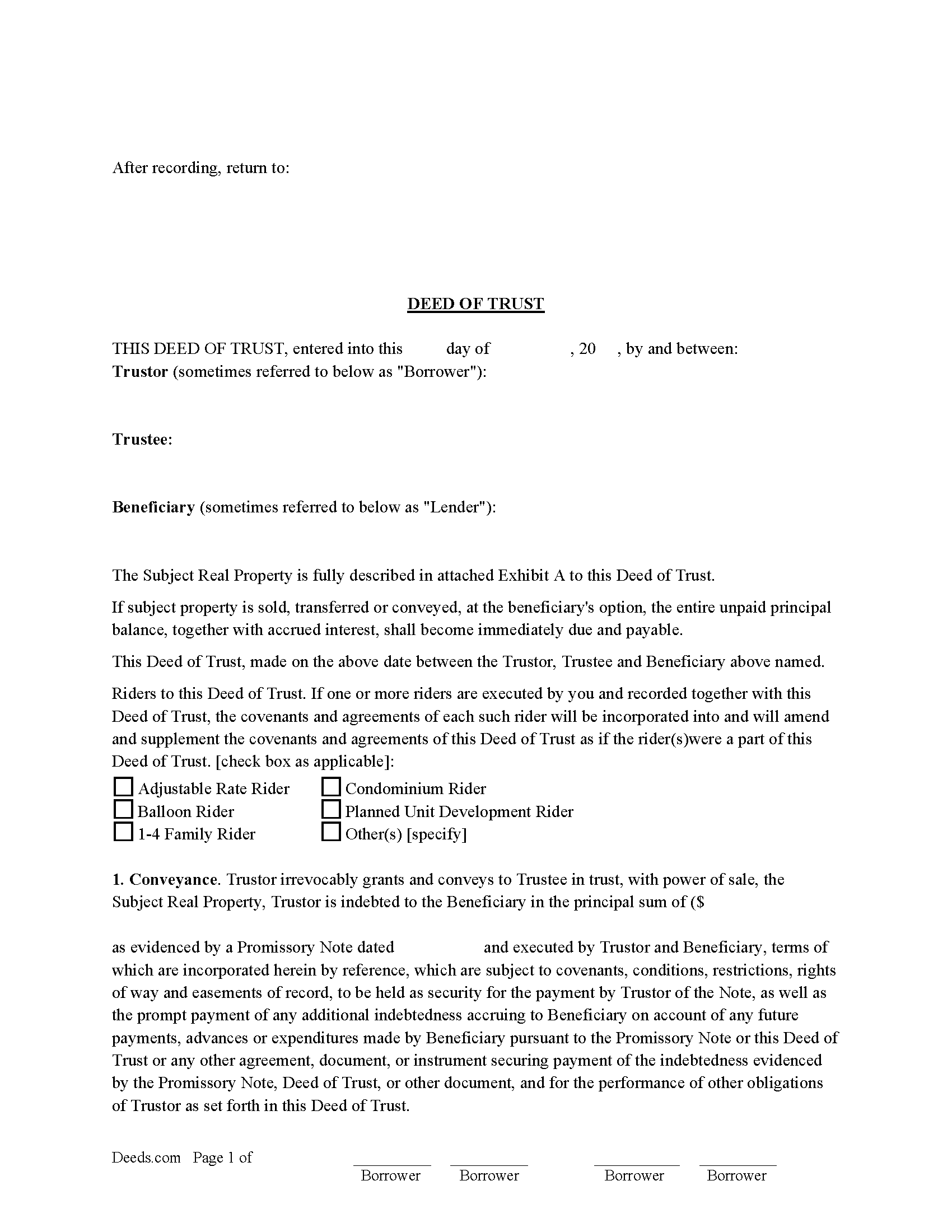Download Utah Deed of Trust and Promissory Note Legal Forms

Utah Deed of Trust and Promissory Note Overview

A deed of trust (DOT), is a document that conveys title to real property to a trustee as security for a loan until the Trustor/borrower repays the Beneficiary/lender according to terms defined in an attached promissory note. In Utah a Deed of Trust with "Power of Sale" is the most favored lending instrument, foreclosures can be non-judicially, saving time and expense.
There are Three parties in a Deed of Trust
("Beneficiary" means the person named or otherwise designated in a trust deed as the person for whose benefit a trust deed is given, or his successor in interest. (Utah Code 57-1-19(1)) Also known as Lender
("Trustor" means the person conveying real property by a trust deed as security for the performance of an obligation.) (Utah Code 57-1-19(2)) Also known as borrower
("Trustee" means a person to whom title to real property is conveyed by trust deed, or his successor in interest. Utah Code 57-1-19(4))
In the case of default on loan, the (Trustee is given the power of sale by which the trustee may exercise and cause the trust property to be sold in the manner provided in Sections 57-1-24 and 57-1-27, after a breach of an obligation for which the trust property is conveyed as security; or, at the option of the beneficiary, a trust deed may be foreclosed in the manner provided by law for the foreclosure of mortgages on real property.) (57-1-23)
These forms contain clauses that are stringent, helping to protect the lender, typically used by an individual/investor/landlord financing residential property, rental property, condominiums, vacant land, small commercial and office.
1. Right to Inspect Property
2. Care of Property (Lender may make necessary repairs and add the cost to the Note, protecting against undue depreciation)
3. Due on Sale (balance due upon sale of property by borrower)
4. Additional financing prohibited unless approved by lender
5. Defaults on prior incumbrances (borrower promises to comply with the terms of prior mortgages or encumbrances.)
6. Indemnification of Lender. Borrower shall indemnify the Lender against any and all liability
7. Assignment of Rents (borrower can collect rents so long as no event of default has occurred)
Promissory Note - use for traditional installment or balloon payment.
1. Late Charge: Any above noted payment which is at least ___ days past due
2. Default Rate: I payment is/are at least 30 days past due, then the principal balance shall bear interest at default rate of ( ___%).
3. In addition to any other remedies available to Lender if this Note is not paid in full at the Maturity Date, Borrowers shall pay to Lender an Overdue Loan Fee.
4. Governed by Utah Law.
(Utah DOT Package includes forms, guidelines, and completed examples)